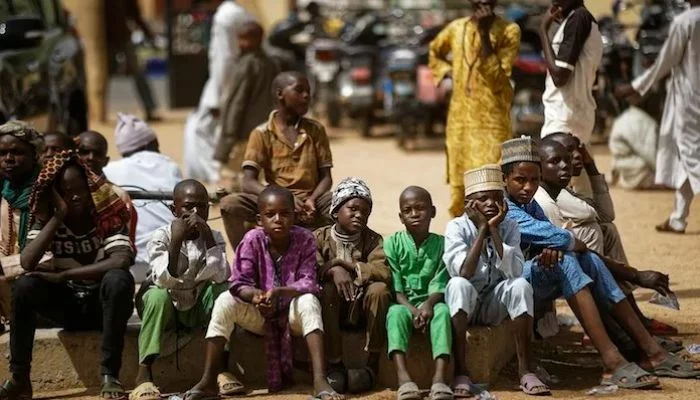Back in 2006, the then Central Bank of Nigeria governor, Professor Charles Soludo presented a paper titled “Poverty: A Northern Phenomenon” at a lecture organized by the Northern Development Initiative in Kaduna where he drew the attention of northern elites and policymakers to calamity about to befall the region. At the event, Professor Soludo was generous in asking the federal government to declare the poverty situation in the region a national crisis. He said: "Poverty is unacceptably high in Nigeria but the alarming and persisting level of poverty in Nigeria is a phenomenon in the North where in some states it is as high as 95 per cent of the population.
Soludo'’s declaration did stir up debate among policy analyst and some NGOs, but the region’s political elites did little or nothing to address the situation. It is 16 years since Soludo’s declaration and the story is still the same, if not worse.
This proclamation is made in view of the recently released multidimensional poverty index report by the Nigerian Bureau for Statistics which showed that poverty is still a northern phenomenon.
A typical spectacle in the streets of most of the cities and towns of northern Nigeria looks like this: multiple streams of school age children roaming about with begging bowls if they are boys and with tray loads balanced on their heads selling trifles if they are girls. If they are youths, aged 20 and above or thereabout the males are likely to be selling petrol measured in jerry cans in the black market or loafing idly and the females will have small or big basins doling out food to buyers in the streets.
Those middle-aged or older lounging tiredly on mats spread in street corners are likely to be beggars with no discrimination to gender.
There is more to the above. On the same streets, the latest brand of luxury Hondas, Toyotas, Range Rovers or Mercedes Benz cars sure to draw a long glance will be purring softly as it traverses pot-hole-filled roads with its expensively dressed occupants. In virtually every street, even in the poorest neighbourhoods, there will be the usual big mansion looming over dilapidated houses that have seen better days. There are school children too, either coming from or going to school.
This is a caricature of the two worlds which combine to make up the North today – one of abject poverty, disease and illiteracy and the other of breathtaking wealth and sophistication. It is typical of the kind of world found in most other underdeveloped societies. However, what has gotten development economists worried about the make-up of this society as found in Northern Nigeria is the preponderance of over 70 per cent of her rural population in the absolute poverty trap, with a yearly rising number among children, women and youths. While in the southern region Nigeria, there are reductions in the number found in this group and the hope that the future looks bright with rising educational enrolment and skill acquisition, the North’s situation looks calamitous and in urgent need of attention before it degenerates to far worse levels.
But the fact is a big proportion has been left behind for so long. What is urgently needed is for the region’s elites and politicians to aggressively stem the tide and embark on a policy rethink that will be more people-focused with a long-term aim of resuscitating the dying sectors of agriculture and industry that have at a time been the mainstay of the region'’s economy.
Northern political leaders must also begin to rethink how they design and implement “poverty alleviation policies and programmes.” Most often, their poverty alleviation programmes do look beautiful on paper, proclaiming such lofty ideals and objectives that after massive expenditure of state and donor agencies funds do not amount to much at the end of the day.
These shortcomings point at other failures that are central to the absence of effective leadership, which is basically about the endemic level of corruption and poor implementation capabilities that sees a sizeable chunk of monies meant to uplift the poor and improve their living standard falling into the hands of a few. If we must reverse the poverty situation, (and we must with urgency) we must deal with corruption and build implementation capabilities required to deliver results.
It is quite sad that most state governors prefer to dispute the poverty figures assigned to their state rather than take out time to evaluate the contents with the view to ascertain and address the underlying issues raised in the recently released poverty and inequality report.
On a final note, it is time the northern state governors and political leaders realize that poverty and inequality go beyond giving out stipends or poorly packaged poverty alleviation and microcredit programmes whose impact is hardly felt by their people.
Poverty is a multidimensional problem that requires a well-thought-out strategy that will enable citizens have access to quality healthcare and education as well as a voice in the governance process. Without this in place, the region will continue to battle with abject poverty and the consequences as we all know is the youth restlessness, high maternal and infant mortality, high level of unemployment, crime, and of course the wanton killings presently experienced across the region.





